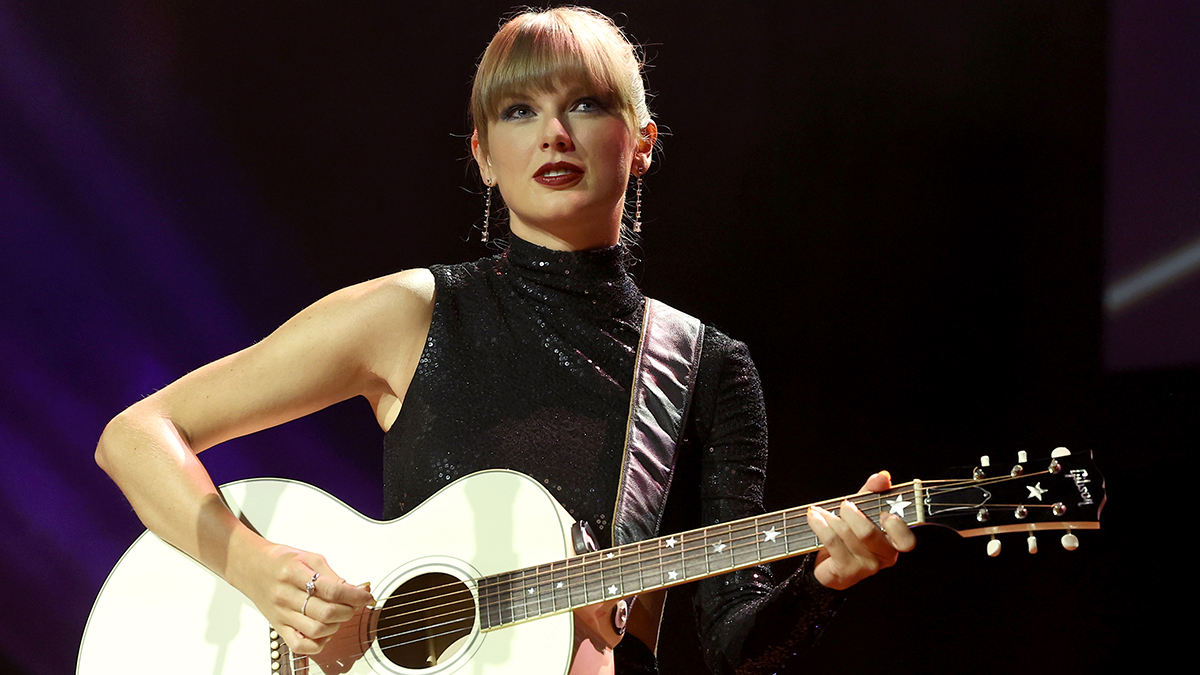Taylor Swift reveals the 3 lyric 'genre categories' she uses when she’s writing songs
“I’ve never talked about this publicly before, because, well, it’s dorky,” she says

While some have appeared to question her songwriting skills, Taylor Swift is widely regarded as one of the finest pop tunesmiths of her generation. In fact, she’s now the proud recipient of the Nashville Songwriters Association’s Songwriter-Artist of the Decade award.
Swift accepted the gong last night at the Association’s annual ceremony, and used her acceptance speech to describe what chin-stroking musicologists might call her songwriting ‘process’, putting particular focus on her much-dissected lyric-writing skills.
During a 13-minute address, Swift said: “There’s so much discussion about genre and it always usually leads back to a conversation about melody and production. But that leaves out possibly my favourite part of songwriting: lyricism.
“And I’ve never talked about this publicly before, because, well, it’s dorky. But I also have, in my mind, secretly, established genre categories for lyrics I write. Three of them, to be exact. They are affectionately titled Quill Lyrics, Fountain Pen Lyrics and Glitter Gel Pen Lyrics.”
Swift went on to detail how each of these categories is defined. Quill lyrics, she says, are those that feature words and phrases that are antiquated, while the Fountain Pen style corresponds to songs that have a modern storyline or references. Swift says that most of her lyrics fall into this category.
Finally, we have Glitter Gel Pen lyrics - those that are “frivolous, carefree, bouncy, syncopated perfectly to the beat”. Speaking metaphorically, Swift describes these songs as “the drunk girl at the party who tells you that you look like an angel in the bathroom”.
With her secret now out, Swift’s fans will doubtless be working their way through her back catalogue deciding which category each of her songs falls into. There could be a few new playlists in this, we’d wager.
Want all the hottest music and gear news, reviews, deals, features and more, direct to your inbox? Sign up here.
On why she came up with these categories, Swift explained: “Because I love doing this thing we are fortunate enough to call a job. Writing songs is my life’s work and my hobby and my never-ending thrill. I am moved beyond words that you, my peers, decided to honour me in this way for work I’d still be doing if I had never been recognised for it.”
You can read a full transcription of Taylor Swift’s speech on the Rolling Stone website.

I’m the Deputy Editor of MusicRadar, having worked on the site since its launch in 2007. I previously spent eight years working on our sister magazine, Computer Music. I’ve been playing the piano, gigging in bands and failing to finish tracks at home for more than 30 years, 24 of which I’ve also spent writing about music and the ever-changing technology used to make it.